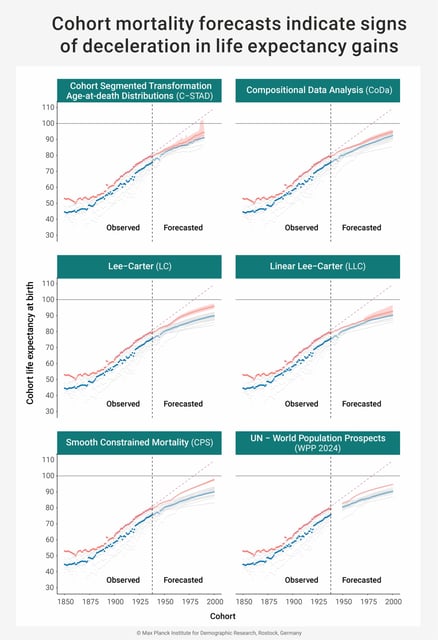Overview
- A peer-reviewed PNAS study forecasts cohort life expectancy for people born between 1939 and 2000 in 23 high-income countries using six mortality models and Human Mortality Database data.
- Generational gains fell from roughly 5.5 months for cohorts born 1900–1938 to about 2.5–3.5 months for later cohorts, a slowdown of about 37%–52% across methods.
- None of the cohorts studied is projected to reach an average life expectancy of 100 years, whereas a straight-line continuation of early 20th-century gains would have hit 100 for the 1980 cohort.
- Age decomposition shows more than half of the lost momentum comes from ages 0–5 and over two-thirds from under-20, with improvements at older ages too modest to compensate.
- Findings are consistent across period- and cohort-based models and remain below historic pace even when older-age improvements are doubled, though the authors note forecasts carry uncertainty and advise planning adjustments for pensions and health care.


